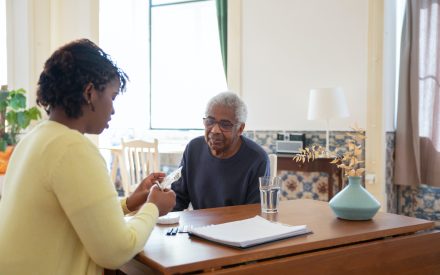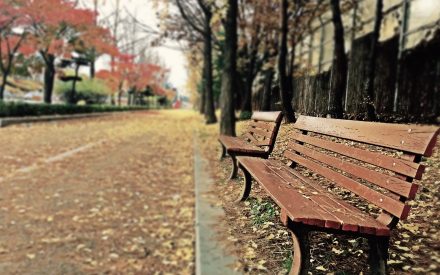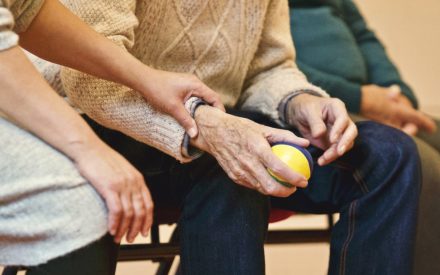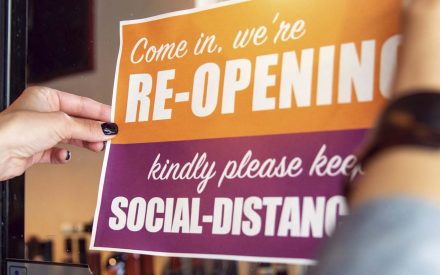Families Under Stress: New Research Shows How Caregivers Have Adapted and Found Resilience throughout the COVID-19 Pandemic
By: Kristin Litzelman, Christina Kim, and Margaret Kerr
Reviewed by: Jane Jensen and Karen Dickrell
The COVID-19 pandemic brought many challenges to the daily lives of families. This has been particularly true for caregivers of those with illnesses or disabilities, who have taken on even greater responsibility for care tasks due to social distancing and quarantine guidelines while they balance working remotely, economic insecurity, and their own stress. Changes in routine, stress, and social isolation are impacting families of all types across the state and world.
Extension specialists and students at the University of Wisconsin-Madison School of Human Ecology used information collected by the Survey of the Health of Wisconsin to understand how caregivers have coped with and adapted to the pandemic. Both early in the pandemic (spring 2020) and the following winter (January 2021), caregivers reported higher levels of stress than non-caregivers. Those who began caregiving in that time had the highest levels of stress. Those new caregivers reported stress that was more than 50% higher than non-caregivers. Continuing caregivers (that is, people who were in a caregiving role early in the pandemic and remained in a caregiving role that winter) also reported elevated stress levels. compared to non-caregivers. Even people who were caregivers at the beginning of the pandemic but had stopped being caregivers by the winter had 20% higher stress levels than non-caregivers.
The types of stress also differed. Overall, non-caregivers ranked job-related stress as the highest. New caregivers and continuing caregivers ranked stress related to their own or family’s medical problems as the worst. People who had stopped caregiving ranked relationships with others as the most stressful.
What can families and communities do about the extra stress that caregivers are experiencing? Earlier this year, we heard from partners that getting help from neighbors was a big help for caregivers during the pandemic. We saw this to be true in the survey, as well – when caregivers felt a sense of community in their neighborhood early in the pandemic, they had lower levels of stress (closer to the levels we saw for non-caregivers) than those without a strong sense of community.
Caregivers should also know that there are many supports and resources available to them. Caregivers can reach out to their local Aging Office, call 2-1-1 or visit https://wisconsincaregiver.org/ to find out what programs might help meet their needs, including respite care, support groups, or other programs. Many Extension offices also offer programming for caregivers, such as Caregiver Cafes or the Powerful Tools for Caregivers course. Take a look at our calendar to see what programs are available near you.
Additional resources to help those in crisis include:
The Disaster Distress Helpline provides crisis counseling and support to people experiencing emotional distress related to disasters, including COVID-19. Call 1-800-985-5990 or text TalkWithUs to 66746 to connect with a trained crisis counselor.
The National Suicide Prevention Lifeline offers free and confidential support for people in distress and prevention and crisis resources for individuals and their loved ones. Call 1-800-273-8255 or chat online by visiting https://suicidepreventionlifeline.org/chat/.
Institute on Aging Friendship Line (https://www.ioaging.org/services/all-inclusive-health-care/friendship-line) is a national crisis intervention hotline and a warmline for non-emergency emotional support calls: Call 1-800-971-0016.
The Caregiver Action Network’s Caregiver Help Desk offers free support to family caregivers across the country. Call 1-855-227-3640 or visit caregiveraction.org/helpdesk.






